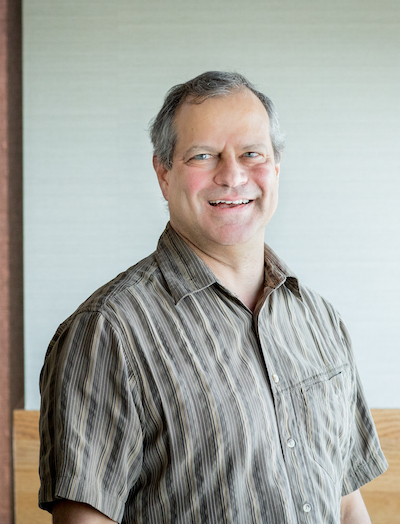It’s not uncommon to see media reports about food insecurity examining “food deserts” — which are areas where residents have few or no convenient options for securing affordable and healthy foods.
But UW–Madison’s Steve Quintana uses similar terminology to spotlight a growing area of concern in the mental health realm.
“We hear the talk about food deserts — but there are also significant therapy deserts, especially when it comes to being able to provide services in Spanish,” says Quintana, professor and chair of the School of Education’s Department of Counseling Psychology.

Quintana is talking about the lack of qualified providers in many areas who can provide mental health services in Spanish or bilingually. As the Latinx population in Dane County — and Wisconsin — has grown, it is an issue that is becoming more critical.
A new certificate program in the Department of Counseling Psychology aims to fill this increasing need for bilingual mental health providers in Wisconsin, across the region, and in other “new growth” areas where Latinx people live. Called “Esperanza,” or hope, the program evolved from a growing partnership between the department and Centro Hispano of Dane County, and is being made possible via a grant from the Wisconsin Partnership Program.
The certificate is just one part of this far-reaching partnership, which aims to build a culture of health — “nuestra cultura de salud” — addressing the many factors influencing wellness within the Latinx community in Dane County.
“Grounded in science, and driven by the community,” is how Evelyn Cruz, director of program planning and evaluation at Centro Hispano, describes the certificate program.
With classes kicking off in spring 2022, the Bilingual Psychological Services Certificate is a nine-credit program for graduate students that will develop the foundational and practical skills needed to provide direct psychological services to Spanish-speaking and bilingual clients in the community. The program will also help students build skills in advocacy, program development, and systems change.
Alyssa Ramirez Stege, a clinical assistant professor in the Department of Counseling Psychology, has been leading the development of the certificate program with Quintana. She says the community partnership model is critical to the program’s effectiveness.
In addition to taking traditional classes, students will have clinical placements with community organizations, including Centro Hispano, Journey Mental Health, the Rainbow Project, and others.
This, Ramirez Stege says, will allow students in the program to not only practice traditional psychotherapy and psychological assessment skills, but also “to understand the lived reality of people locally and have the ability to respond to those realities in real time.”
The program is focused on recruiting students who grew up speaking Spanish in their homes. Quintana explains this is so students already possess a good understanding of social language, as well as the language of emotions and intimacy. The pro- gram then provides training that will help students learn the professional language they need to effectively conduct therapy.
“For too long, the field has assumed that we would just bring in bilingual students, training them in English, and then they would be great providers,” says Quintana. “What we want is for the students to learn how to think clinically in Spanish, as well as have the Spanish vocabulary and manner of speaking to be able to talk to the client.”
The training will also be centered around the needs of the Latinx community.
“It’s not just creating more training for mental health care providers,” Cruz says. “It’s the kind of training that is in alignment with understanding, honoring, and finding strength for the Latinx community.”
Learn more: esperanza.wisc.edu